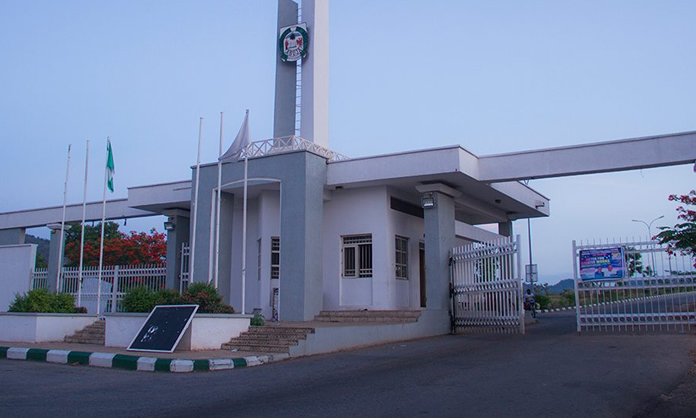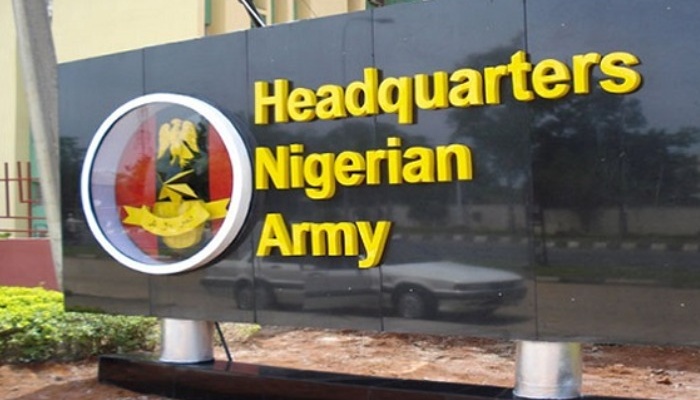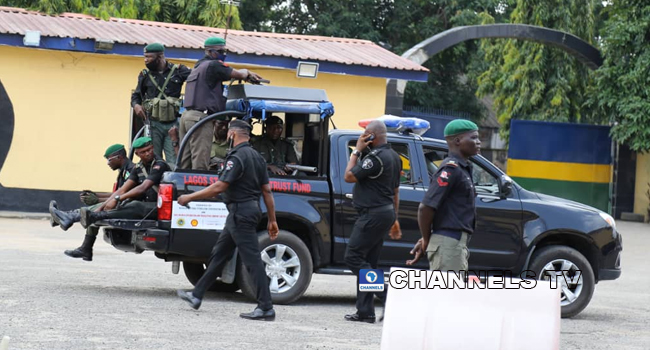By Ibe Pascal Arogorn
The peoples of Nigeria must be united to enable this country to play a full part in shaping the destiny of mankind. On no account should we allow the selfish ambitions of individuals to jeopardise the peace of the law-abiding people of Nigeria.
It is important that we put away bitterness and go forward in friendship to Independence.
Finally. The southeast Igbo spoke with agility and great stance to the issues of secession in the region which very commendable.
Southeast Nigeria which is known as most secured place in Nigeria after civil war has been characterized by avoidable insecurity by the agitations for self determination. To an extent, it seems like the leaders in the region were scared to take their stance on the secession clamouring.
After the meeting on Saturday by the Igbo leaders, the communiqué read in part, “We condemn in totality, the activities of violent secessionist groups in the South East and elsewhere; we firmly proclaim that we do not support them, they do not speak for South East,” said the Chairman of the Forum and Ebonyi State Governor, David Umahi, at the end of the meeting.
He added, “The impression that South East leaders are silent over some of our youths’ agitations for secession is not correct.
“South East Governors, Ohanaeze President, National Assembly members, notable leaders had come out publicly many times in the past to speak against such agitations. In order not to mismanage the unfortunate situation, South East leaders have set up a committee to engage such youths to stop and allow elders speak to address such fears.”
It is a courageous decision. The unity of Nigeria can’t be questioned owing to the country’s structure. Every region need each to survive.
A writer Frederick Neabufo once said, “The idea of having a near-perfect country out of a ruptured Nigeria is illusory. The composite parts of the country each contribute to the miasma of confusion that Nigeria is. No single entity is responsible for Nigeria’s problems. All the ethnic nationalities are equal shareholders in the failing of the Nigerian enterprise. There is enough blame to go around.
The idea of having a near-perfect country out of a ruptured Nigeria is illusory. The composite parts of the country each contribute to the miasma of confusion that Nigeria is. No single entity is responsible for Nigeria’s problems. All the ethnic nationalities are equal shareholders in the failing of the Nigerian enterprise. There is enough blame to go around.
Splintering the entity has often been exalted as the remedy to Nigeria’s problems. But this is a defective reasoning because in this instance, Nigeria is defined by its geography and not its people. Nigeria is its people. It is the same people that will occupy the emergent states not angels. There is no paradise anywhere. The problem with Nigeria is a people-problem. Recalibrating the map will not change anything – if the minds of the people do not conform to progressive values.
The assumption that there will be ‘’divine concordance’’ if Nigeria breaks up according to regional lines is obtuse. That a people speak a common language does not put a stamp of camaraderie on group relationship. In the south-east for instance, there is native discrimination among people of the same region. Some are regarded as ‘’impure Igbo breeds’’ while others consider themselves as ‘’true Igbo scions’’. There are areas sons of certain states are advised not to tread in search of love. Also, it is quotidian among the Igbo to describe people from certain areas in Ebonyi with the pejorative of ‘’wah awah’’ – ‘’impure breeds’’. And there is a deep gulf among classes on the social ladder in the region.
The best thing that can happen to Nigeria is unity no matter the uprising in some regions . The unity of Nigeria should be venerated and unprofane by any one.
Politics of imbalance and to very a large extent poor Leadership in Nigeria at various levels of governance and administration has failed to address nagging the socio-political, and economic inequality in the nation’s polity. The politics of imbalance in the nation’s political, social, economic, political and co-operate governance in the management, sharing, and allocation of the nation’s common wealth, constitute to a very large rampant state of insecurity, rancor, fear, suspicion and feelings of agitation, exclusion and isolation within and among the various ethnic nationalities in Nigerian state.
Hence, primarily the problems of underdevelopment, poverty, social and political imbalance further fuel the desire for agitation and division within the Nigerian federation. Again, the politics of uneven wealth sharing formula further stimulates feelings of secession from the Nigerian state, via agitation for Biafra from the South Eastern Nigeria, calls for re-structuring also from the South Western Nigeria stemmed from the marginalization and exploitation of the resources from the South-South area of Nigeria.
Hence, feelings of marginalization and deprivation nursed by people of the South East region occasioned by the high spate of poverty in the region has fuelled the called secession for another country, other than Nigeria.
Biafra agitation stemmed from leadership failure on the part of government, amounting to years of social neglect, economic and political isolation of the people in Nigeria and particularly people from the South East of the Nation in general. Again, the monumental underdevelopment, lingering unemployment for the youth skewed political structure and composition and snarled speed economic growth of the Nigerian state resulting to increased poverty, hunger, insecurity and instability via Boko Haram [1].
The problem is further compounded with the failure of successive government over the over years to address the high rate of unemployment, corruption, mismanagement of public funds at the expense of the national interest.
This has led to brain drain, money laundering by government officials, immigration to Europe in search of greener pastures and terrorism and very recently violence clashes between farmers and Fulani herdsmen in the North Central of the Nation. A Nation is an abstraction in itself without any form or status; it is the people, their customs, culture, language and political difference/affiliation, personality and their idiosyncrasies that gives forms and meaning to what constitute a Nation (Soremekun, 2012).
Again, a Nation’s characteristic is noted in its geographical location, topography, population, natural resources, climatic conditions, social, political, economic, cultural beliefs and ideology. Nigeria is describe and regarded as a nation because of these characteristics highlighted above. Fundamentally, again, a Nation exists because of its people, values, cultures, and socio-political and economic structure.
While, it is true that Nigeria as a Nation fit into these description as well as other Nation in the world, its socio-political composition has created tension, insecurity and a feeling and consciousness of social, economic and political exclusion and isolation of some of its constituent part in the minds and hearts of peoples in these areas. Many scholars have contended that the skewed composition of Nigerian political structure constitutes avenues of conflict, political instability and unending agitations for balance, fairness, sense of belonging and social inclusion, and most recently restructuring in the polity.
The Nigerian state historically, was the conception and the design of the British colonial master in 1914, when the Northern and the Southern protectorate were brought together as one political unit by Lord Lugard. Its primary objective and purpose was to service the British commercial, economic interest and for the ease of administration of colonial Nigeria in 1914 as postulated by James Ojiako.
Hence, this exercise did not consider the overall interest, customs, cultures, language, and religion of the different ethnic nationalities in the polity. With the Hausa/Fulani in the North having heavy impact of Islamic culture and education for over six centuries and without common ties and relationship with the Yoruba and Igbo in the South with the influence of Christianity and European culture and values.
Go to the South-East today. Since the 70s and the oil boom. Nigeria has invested in commercial industries across the country. None has been sited in the South east. None. Refineries, Steel Plants, Cement Firms. Any Industry. The South East was systematically de-industrialized. Even when it was the best location for any industry, there was always a reason why it should not be sited there. What this means was that any Igbo man that wanted to work in a commercial federal establishment had to leave the east. Add this to the indigenization policy of the early 70s that pushed the Igbos out of private companies. It meant that international companies also avoided expansion into the south east. The Nigerian Breweries, the Dunlop and other such firms sited their plants outside the East and only set up distribution centers to sell in the region. This is one of the main reasons the exodus of Igbos from the zone accelerated after the war and continues to this day despite the hostility they face in certain parts of Nigeria. And why most became traders and commercial business men. Because access to organized work either in the government, government commercial institutions and even commercial institutions were limited.
The only industrial enterprise in the east are built by easterners; Nnewi, Aba, Onitsha. These are Igbo indigenous industrial cities.
This has been the practice since the end of the war.
In addition to this, the Federal Government has systematically made it difficult for Easterners to do commercial business even in the East. The Federal Roads in the East are some of the worst in Nigeria. The Eastern Sea ports have been made ineffective. It was a war to get the Enugu Airport upgraded to an International Airport. The former Finance Minister shed tears on the day the first International Flight landed in Enugu. Yes, Okonjo Iwealla cried! Recently, it was only the South East that was conspicuously missing in the New Railway Plan of the Federal Government. Nigeria has 6 regions. And one was missing in a national railway plan. Incidentally, Igbos who reside here are the most itinerant in the country and would benefit most from a national transport plan. Even our President changed the plan to include his village but a zone of the country was not included.
When you go to the east, despite the lack of federal presence, the presence of police all over the east tells a story. They mount road blocks and make it difficult to have commercial activity. Recently, Customs has joined. And lastly the army. It is an occupied territory. They extort money. They intimate. They recently have started killing.
Nigeria has made the east unlivable. Purposely. Carefully.
I am often in conversations where people accuse the east of being clannish. That while we are welcome in all parts of Nigeria, outsiders cannot come to the East. My question is: why would you come to the east? To do what? There is no business to do in the east. Nigeria has ensured that. Why would someone from the South West of Nigeria go to the East to invest? No one would prevent you. But it hardly makes commercial sense. Nigeria has ensured that. Those from the North are there in droves. Igbos love to celebrate with cows. And the cattlemen go there to sell their cattle. No one molests them. In my village and most villages in the East, they live unmolested. But those are the only people who can find commercial reason to be there!
So those who wonder why Igbos are angry, wonder no more. While most would not dare carry arms against Nigeria, don’t under estimate the level of disconnection and anger especially among the younger generation. Nigeria is made of nations that came together to form a country. No nation will like to be in perpetual servitude. That Nnamdi Kanu’s supporters starred down army tanks with sticks is a sign that the next generation will be ready to fight bare hands if necessary to stop Nigeria treating the Igbo nation as second-class citizens. There will be fiercer and angrier Kanus in our immediate future if Nigeria does not officially stop the “vanquished “program against the Igbos who fought the civil war. You cannot preach unity and indivisibility of the country on TV and all your actions point at discriminating against the components of the country. It is as dangerous as it is foolhardy. Let those who preach unity walk the talk and stop open discrimination of their countrymen. History has shown that you cannot decree peace. You cannot decree unity. You cannot force any group to belong to a country by force, it may work for a time. But never sustainable.
Igbo leaders should also begin to convulse for the betterment and a good sense of belonging for the Igbos in the polity of Nigeria for stability of the country’s unity.
Ibe Pascal Arogorn, is a journalist, writer and public affairs analyst, writes from Asaba, Delta state.







